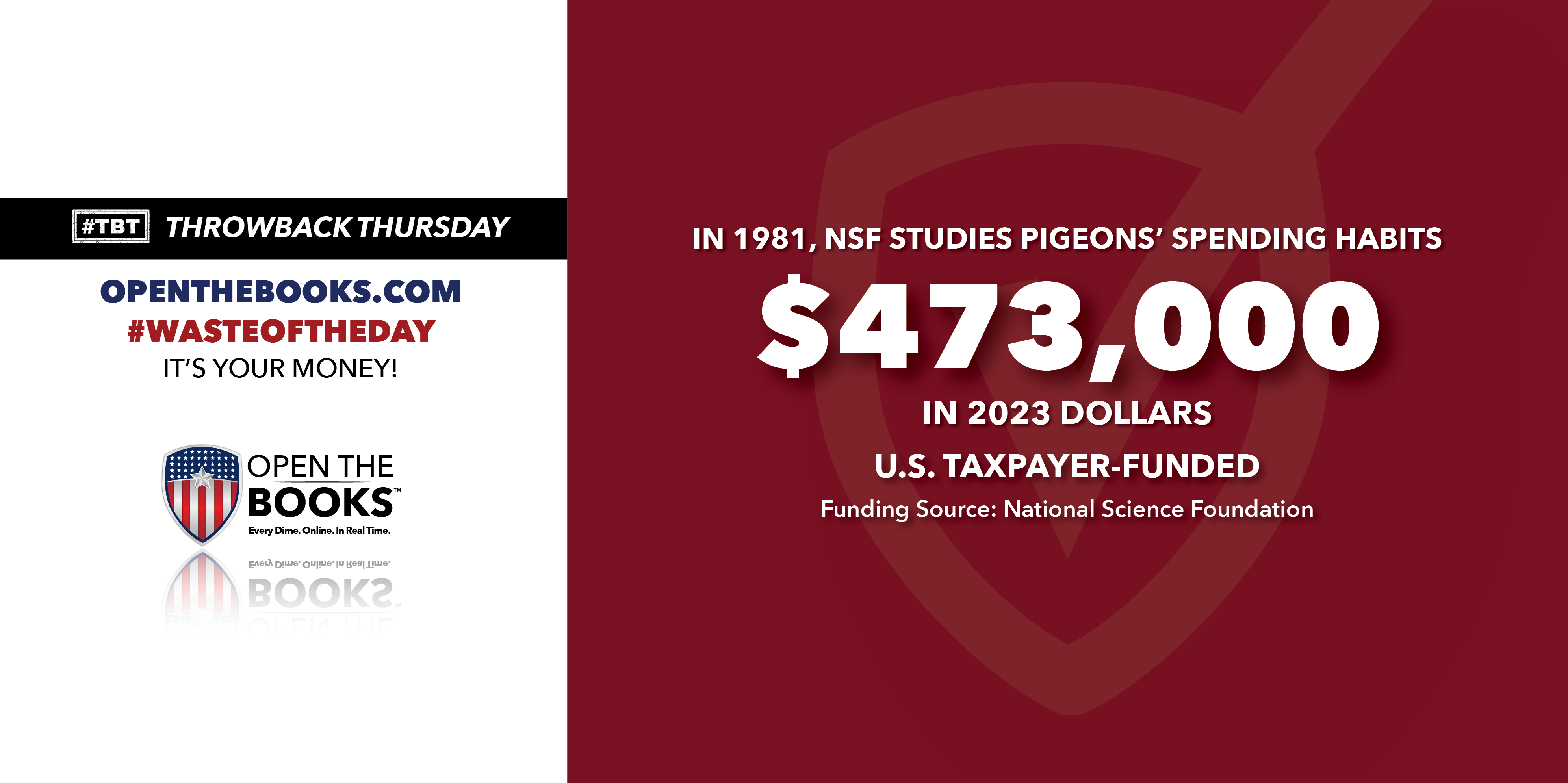Throwback Thursday: NSF Tested Economic Principles on Pigeons
In 1981, the National Science Foundation spent $144,012 – over $473,000 in 2023 dollars – to test commonly accepted economic principles like supply and demand on pigeons.
Sen. William Proxmire, a Democrat from Wisconsin, awarded the NSF his Golden Fleece Award for this useless experiment.

According to Proxmire, the research was performed by highly accredited economists and psychologists, and used technically correct and sound methods. The problem, though, is that researchers already had the answer to the questions they were posing.
Typically, tests are conducted on animals to determine applicability of a concept to humans. However, in this case, the concepts tested were already well understood in human behavior. In one set of experiments, the economic “substitution effect” of substituting cheaper goods for more expensive goods was tested. The price of certain foods was raised by requiring pigeons to peck more times to receive the food or by providing less food per peck, and pigeons moved away from the more “expensive” food that required more pecks and toward the better value.
Other experiments included studies on the supply of labor, determining if pigeons would trade income for leisure at various prices.
As noted, both of these phenomena have been thoroughly researched, tested, understood, and replicated in humans. There is no benefit in seeing if pigeons replicate human behavior.
“It is highly questionable whether these animal experiments can really give us any insight into the more much complex and serious problems of a modern society,” Proxmire said then.
The #WasteOfTheDay is brought to you by the forensic auditors at OpenTheBooks.com






